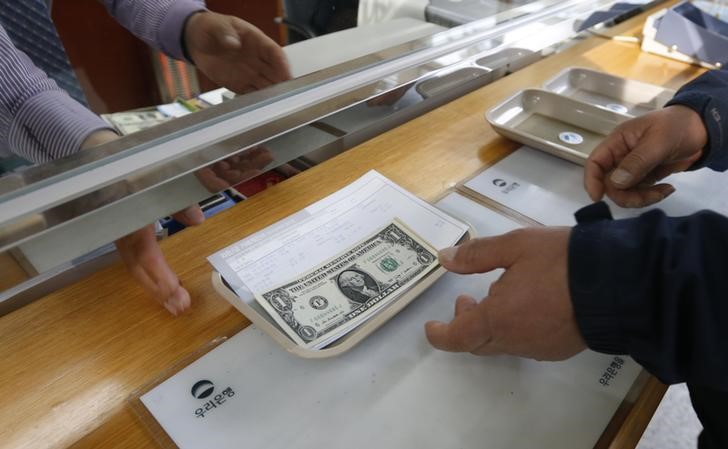By Christine Kim and Lee Shin-hyung
SEOUL (Reuters) - South Korea may ease one of its key capital controls introduced since the global financial crisis in the face of concerns about capital outflow from emerging markets, a senior finance ministry official told Reuters.
Song In-chang, head of the ministry's international finance bureau, said the ministry was "actively considering" raising the ceilings on the foreign-currency forward positions that banks can hold.
"The ceilings have acted as a breakwater for flows coming in. You can't keep building up that defence if capital may go out," Song said on Friday in an embargoed interview, referring to the ceilings introduced to curb inflow of short-term funds.
He did not specifically refer to an anticipated U.S. interest rate increase later this year as a cause for the likely easing of controls but was responding to a question on the growing concerns about capital flowing into the United States.
The ceiling was implemented in October 2010 as part of capital controls aimed at mitigating short-term capital inflow, and has only been tightened in steps. If the government eases the limits, that would be the first easing in the ceiling.
The current caps on currency derivative holdings have been set at 30 percent of equity for local banks and 150 percent for foreign bank branches since the start of 2013.
Song said South Korean financial markets would not likely experience severe volatility even when the Federal Reserve raises its interest rates, but added that the government was studying several measures in case of heavy capital outflow.
Policymakers have been adamant Asia's fourth-largest economy will weather fluctuations in global markets, pointing to huge foreign-exchange reserves that are ranked the world's seventh-biggest and sustained current account surpluses.
"At this point, we don't know in which direction capital will go (after U.S. rate hikes) because we saw flows coming in when the Federal Reserve started tapering its bond buying programme," Song said.
Song said the government would also strengthen its monitoring of banks' fiscal soundness based on foreign exchange liquidity coverage ratio (LCR), a Basel III regulation aimed at promoting banks' resilience of liquidity risk profiles.

To keep foreign investors' money in local assets, the ministry is also looking at cutting taxes for long-term investors in South Korean treasury bonds, Song said, although details have not yet been hammered out.
(Editing by Choonsik Yoo and Jacqueline Wong)